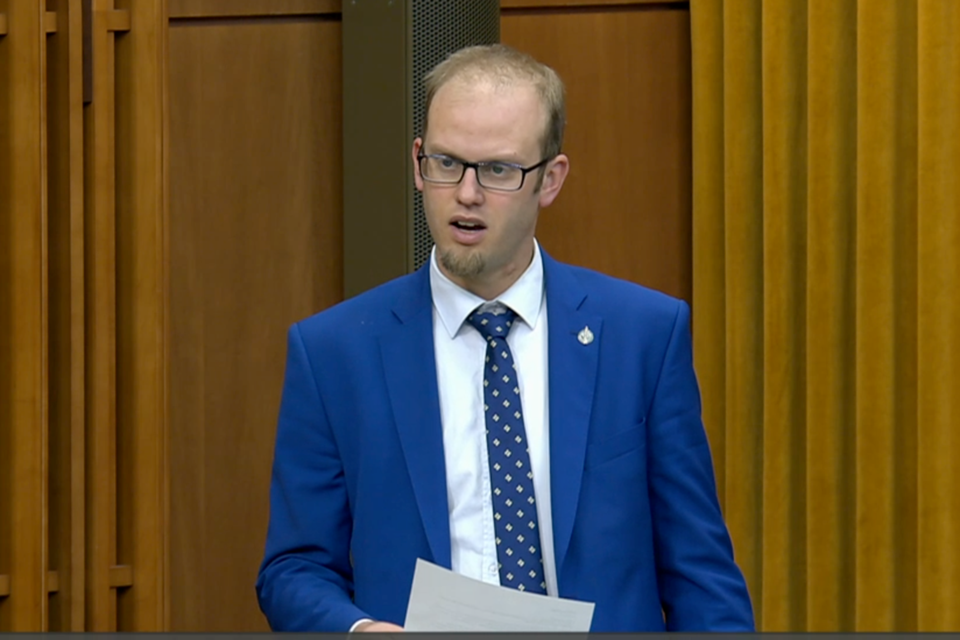By Kristine Jean
Westlock News Staff
WESTLOCK – Peace River-Westlock Member of Parliament Arnold Viersen wants to help bring justice to victims of serious crimes and ensure today’s technology does not hamper law enforcement’s efforts to do so.
Last month Viersen introduced a private member’s Bill C-370, Bringing Home Justice for Victims of Serious Crimes Act, in the House of Commons, which would help law enforcement overcome technology barriers when investigating serious crimes like child sexual exploitation, abduction, human trafficking and terrorism.
The bill would give a judge the ability to make an order compelling a person to unlock an electronic device, such as a cell phone or a tablet, limited to a narrow range of serious offences, only in situations where law enforcement has already received a warrant, to access the information on the device.
“There are few things more frustrating to law enforcement than to have the legal right to access potential evidence but the inability to actually access it due to the ‘virtually locked door’ of encryption,” said Viersen.
“This can impede investigations on critical files such as child sexual exploitation and human trafficking. Encryption technology can deny justice to victims of these serious crimes, many of whom are children.”
Viersen said the bill has been in the works for more than two years and was first brought to his attention by a detective who informed him of the extremely long process it takes to obtain evidence from a locked device. The MP noted an example of police sending an electronic device away to their tech department, they’re told it could be "opened in 128 years,” despite having a warrant to access the device.
“All they can do is guarantee that in 128 years they’ll be in the phone,” explained Viersen. “(Police said) it would be helpful if, for the sake of these victims, when the court issues the warrant saying yes you may look in that person’s phone, if they could put an order on the warrant to say the person must open the phone (with a fingerprint scanner or a password).”
He noted the bill also creates an offence for refusing to comply with the order and could result in charges.
“If they fail to do that, we could charge them with failing to open the phone. Basically, it’s the same as breaching your bail conditions, failing to abide by a court order,” said Viersen.
There is a process to follow with regards to a private members bill in the House of Commons, noted Viersen, pointing out first reading introduces the bill with no vote. It is then up to the government if they like the idea and agree with the bill, to take the idea and bring in their own legislation.
“We’ve got a number of organizations from across the country that have endorsed the bill. We were working with (them) to just get their feedback on it,” he said.
“It all would move a lot faster if the government says that’s a good idea and takes the idea and runs with it.”
Some of the organizations that have backed the bill include Little Warriors in Edmonton, the Council of Chiefs of Police in Sherwood Park and the federal Ombudsmen for the Victims of Crime.
Viersen said as part of their research prior to presenting the private members bill, they looked at other countries that have introduced similar legislation, including the U.K. and Germany.
“It is something that our allied countries are doing as well,” said Viersen, noting Bill C-370 would have a positive impact, not just for the victims of serious crimes but also for law enforcement, who would have the ability to complete and close some long-outstanding cases.
“That would bring some justice for these people that have been working on this for sometimes many years,” said Viersen.
“As technology continues to progress, Parliament must ensure law enforcement has the tools needed to secure justice. This legislation will give law enforcement a valuable tool previously unavailable to secure critical evidence for cases involving electronic devices.”



